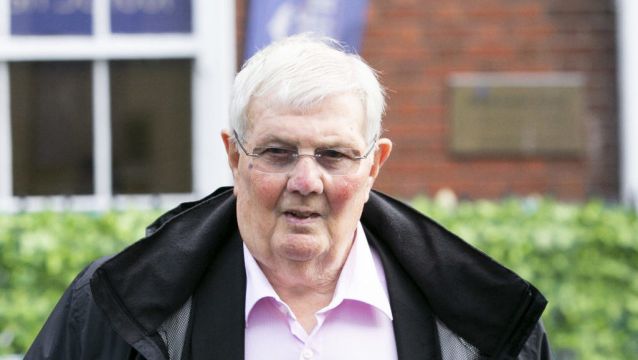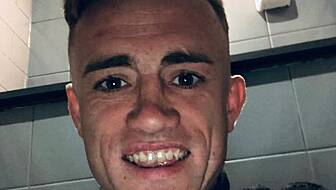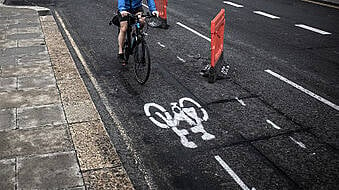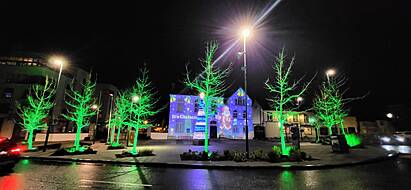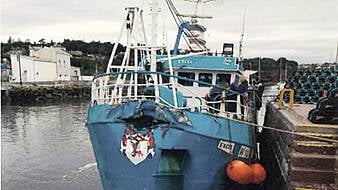Stardust manager Eamon Butterly has told an inquest that the locking and unlocking of exit doors at the nightclub was his joint policy with door staff.
Mr Butterly said the policy was the head doorman's initiative and could not say how much of the policy he was “willing to own".
He accepted that the evidence he has now given to the Dublin District Coroner’s Court is “contradictory” to evidence he gave to an original tribunal into the fatal fire that killed 48 people.
Mr Butterly was being cross-examined on Wednesday by Michael O’Higgins SC, at the inquest into the blaze that swept through the Stardust in the early hours of February 14th, 1981.
The jury has already heard that Mr Butterly told gardaí that the practice of draping padlocked chains over the panic bars of exit doors in the nightclub “originated from the doormen” and was not something he ordered them to do.
Mr O’Higgins, representing a number of the families of the victims, said there was a conflict between what Mr Butterly originally told the gardaí and what he had told the jury in this inquest.
He said that when Mr Butterly was asked by gardaí about the policy of locking and unlocking exit doors, Mr Butterly had replied: “Exit doors five, six and one, were normally opened between 11.30pm and 12am.”
Mr O’Higgins said that Mr Butterly had told gardaí that most doormen had no responsibility for checking if the doors were unlocked, and this responsibility was placed on the head doorman.
Mr O’Higgins said the gardaí had put it to Mr Butterly that some doormen had said it was normal procedure to unlock fire exit doors before discos, and he was asked why this had not taken place on the night of February 13th, 1981, until about midnight.
Exit doors
“The policy of unlocking the remaining doors at approximately 11.30pm was forced on me by the fact that a large number of people were getting in for free due to the actions of their friends who were opening exit doors from the inside,” Mr Butterly told gardaí.
Mr O’Higgins said that Mr Butterly had told gardaí that “the policy of not opening exit doors five, six and one until approximately 11.30pm was decided on”.
“The policy of doormen circulating the premises after they had finished their duties on the main door was another result of discussions between (head doorman) Tom Kennan, the other doormen and myself,” counsel said Mr Butterly had said.
“Does that say in very bald terms this was your policy?” asked Mr O’Higgins.
“It was saying that I agreed with what they said,” replied Mr Butterly.
“Was it your policy?” asked Mr O’Higgins.
“It was the policy of the security staff and me,” replied Mr Butterly.
“Is that a shift from what you told the jury last Thursday, when you said this was all Mr Kennan’s initiative?” asked Mr O’Higgins.
“It was Mr Kennan’s initiative,” replied Mr Butterly.
“How much of this policy are you willing to own?”
“I can’t say,” replied Mr Butterly.
Again referring to the original statements, Mr O’Higgins said that Mr Butterly had been asked who made the decision to keep the doors locked as people were getting in for free, to which Mr Butterly said: “I made the decision myself.”
Original tribunal
“You’re owning it 100 per cent there, aren’t you?” asked Mr O’Higgins.
“I am, yeah,” replied Mr Butterly.
Mr O’Higgins said that at the original tribunal in 1981, Mr Butterly had “owned the decision 100 per cent,” and he asked why the witness was now telling the inquest jury the exact opposite.
“I made the decision with Mr Kennan and (deputy head doorman) Mr Doyle,” said Mr Butterly.
Mr O’Higgins asked him if he believed that the evidence he had given the tribunal and evidence he had given the inquest was the same, to which Mr Butterly replied: “I’ve given the evidence to the best of my ability.”
Coroner Dr Myra Cullinane said that the evidence which was heard last week and evidence heard from 1981 was different, and she asked Mr Butterly which evidence he now stood over.
“The ones I made here,” replied Mr Butterly.
“In 1981, the decision was made between the three of us, so I went along with Mr Kennan. That is what I believed last Thursday,” he said, adding: “It is contradictory all right, yeah.”
He went on to say: “I believed what I said here, and now you’ve shown me what I said in the tribunal, I have to believe that as well.”
Mr Butterly’s evidence continues this afternoon.
